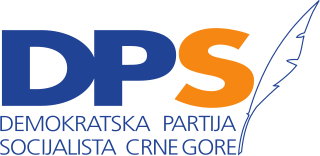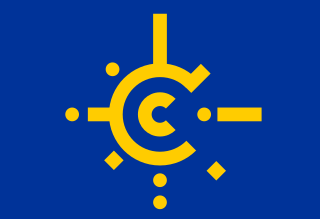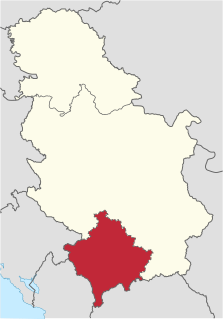
The Federal Republic of Yugoslavia, commonly referred to as FR Yugoslavia or simply Yugoslavia, was a country in the Balkans, which came into existence in 1992, following the breakup of the SFR Yugoslavia. It comprised of the Republic of Serbia and the Republic of Montenegro, the two remaining republics of Yugoslavia. In 2003, FR Yugoslavia was transformed from a federal republic to a political union, and became officially known as the State Union of Serbia and Montenegro. In 2006, Montenegro seceded from the union, following an independence referendum which narrowly passed, leading to the full independence of Serbia and Montenegro.

Yugoslavia was a country in Southeast Europe and Central Europe for most of the 20th century. It came into existence after World War I in 1918 under the name of the Kingdom of Serbs, Croats and Slovenes by the merger of the provisional State of Slovenes, Croats and Serbs with the Kingdom of Serbia, and constituted the first union of the South Slavic people as a sovereign state, following centuries in which the region had been part of the Ottoman Empire and Austria-Hungary. Peter I of Serbia was its first sovereign. The kingdom gained international recognition on 13 July 1922 at the Conference of Ambassadors in Paris. The official name of the state was changed to Kingdom of Yugoslavia on 3 October 1929.

The Socialist Party of Serbia is a left-wing nationalist and populist political party in Serbia that identifies as democratic socialist and social-democratic. The Socialist Party of Serbia was the direct descendant of the League of Communists of Serbia. Throughout its existence, the party has utilised some nationalist rhetoric and themes, and has therefore been labelled a Serbian nationalist party, although the SPS has never identified itself as such.

The Democratic Party of Socialists of Montenegro is an opposition catch-all and a populist political party in Montenegro. The party was formed in 1991 as the successor of the League of Communists of Montenegro, which had governed Montenegro within the Yugoslav federation since World War II. Since its formation and the introduction of a multi-party system, the DPS has played a dominant role in Montenegrin politics, forming the backbone of every coalition government until 2020, when it entered the opposition in the aftermath of the 2020 parliamentary elections. This marked the first time since 1945 that the party had not been in power.

The Central European Free Trade Agreement (CEFTA) is an international trade agreement between countries mostly located in Southeastern Europe. Founded by representatives of Poland, Hungary and Czechoslovakia, CEFTA expanded to Albania, Bosnia and Herzegovina, Bulgaria, Croatia, Moldova, Montenegro, North Macedonia, Romania, Serbia, Slovenia and the UNMIK.

Southeast Europe or Southeastern Europe (SEE) is a geographical region of Europe, consisting primarily of the coterminous Balkan Peninsula. There are overlapping and conflicting definitions as to where exactly Southeastern Europe begins or ends or how it relates to other regions of the continent. Sovereign states and territories that are included in the region are, in alphabetical order: Albania, Bosnia and Herzegovina, Bulgaria, Croatia, Greece, Kosovo, Montenegro, North Macedonia, Romania, Serbia, and East Thrace. Sometimes, Moldova and Slovenia are also included. The largest city of the region is Istanbul, followed by Bucharest, Sofia, Belgrade, and Athens.
Serb(ian) People's Party, Serb(ian) Popular Party, Serb(ian) National Party is a translation of Srpska narodna stranka and the name of a number of political parties:

The breakup of Yugoslavia occurred as a result of a series of political upheavals and conflicts during the early 1990s. After a period of political and economic crisis in the 1980s, constituent republics of the Socialist Federal Republic of Yugoslavia split apart, but the unresolved issues caused bitter inter-ethnic Yugoslav wars. The wars primarily affected Bosnia and Herzegovina, neighbouring parts of Croatia and, some years later, Kosovo.

In talks with countries that have expressed a wish to join the European Union, the EU typically concludes Association Agreements in exchange for commitments to political, economic, trade, or human rights reform in that country. In exchange, the country may be offered tariff-free access to some or all EU markets, and financial or technical assistance.

United Nations Security Council resolution 1244, adopted on 10 June 1999, after recalling resolutions 1160 (1998), 1199 (1998), 1203 (1998) and 1239 (1999), authorised an international civil and military presence in the Federal Republic of Yugoslavia and established the United Nations Interim Administration Mission in Kosovo (UNMIK). It followed an agreement by Yugoslav President Slobodan Milošević to terms proposed by President of Finland Martti Ahtisaari and former Prime Minister of Russia Viktor Chernomyrdin on 8 June, involving withdrawal of all Yugoslav state forces from Kosovo.

An independence referendum was held in Montenegro on 21 May 2006. It was approved by 55.5% of voters, narrowly passing the 55% threshold. By 23 May, preliminary referendum results were recognized by all five permanent members of the United Nations Security Council, suggesting widespread international recognition if Montenegro were to become formally independent. On 31 May, the referendum commission officially confirmed the results of the referendum, verifying that 55.5% of the population of Montenegrin voters had voted in favor of independence. Because voters met the controversial threshold requirement of 55% approval, the referendum was incorporated into a declaration of independence during a special parliamentary session on 31 May. The Assembly of the Republic of Montenegro made a formal Declaration of Independence on Saturday 3 June.

The Socialist Republic of Serbia, previously known as Federal State of Serbia and People's Republic of Serbia, commonly referred to as Socialist Serbia, or simply as Serbia, was one of the six constituent republics of the Socialist Federal Republic of Yugoslavia and the nation state of the Serbs. It was the largest constituent republic in terms of population and territory. Its capital, Belgrade, was also the federal capital of Yugoslavia.
The anti-bureaucratic revolution was a campaign of street protests by supporters of Serbian leader Slobodan Milošević that ran between 1988 and 1989 in Yugoslavia. The protests overthrew the governments of the Serbian autonomous provinces of Vojvodina and Kosovo, as well as the government of the Socialist Republic of Montenegro, and replaced them with allies of Milošević, thereby creating a dominant voting bloc within the Yugoslav presidency council.

The Turks in Kosovo, also known as Kosovo Turks, Kosovan Turks are the ethnic Turks who constitute a minority group in Kosovo.

Andrija Mandić is a Montenegrin Serb politician. He is the President of the major ethnic Serb political party in Montenegro, the New Serb Democracy. He was the head of the Democratic Front parliamentary club in the parliament until 2020.

The Republic of Serbia was a constituent state of the Federal Republic of Yugoslavia between 1992 and 2003 and the State Union of Serbia and Montenegro from 2003 to 2006. With Montenegro's secession from the union with Serbia in 2006, both became sovereign states in their own right for the first time in nearly 88 years.

The Autonomous Province of Kosovo and Metohija, commonly known as Kosovo and Metohija or Kosovo for short and abbreviated as KiM or Kosmet, refers to the region of Kosovo as defined in the Constitution of Serbia. The territory of the province is disputed between Serbia and the self-proclaimed Republic of Kosovo, the latter of which has de facto control. The region had functioned as part of Serbia for most of the period between 1912 and 1999.

The following outline is provided as an overview of and topical guide to Serbia:

Kosovan–Montenegrin relations are foreign relations between Kosovo and Montenegro. Montenegro has 78.6 km (48.8 mi)-long border with Kosovo. It was the 49th state to recognise Kosovo's independence.

Slobodan Milošević was a Yugoslav and Serbian politician who served as the President of Serbia from 1989 to 1992 and within the Federal Republic of Yugoslavia from 1992 to 1997, and President of the Federal Republic of Yugoslavia from 1997 to 2000. He led the Socialist Party of Serbia from its foundation in 1990 and rose to power as Serbian President during efforts to reform the 1974 Constitution of Yugoslavia in response to alleged marginalization of Serbia, views that Serbia's autonomous provinces had too much power, making them almost independent from Serbia, and claims of political incapacity to deter Albanian separatist unrest in Serbia's autonomous province of Kosovo.

















